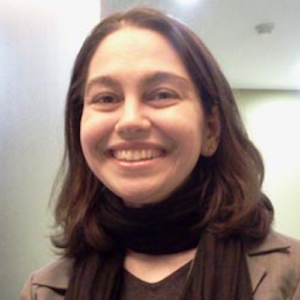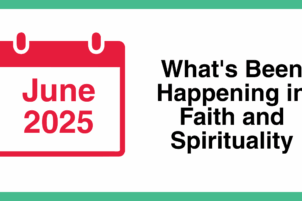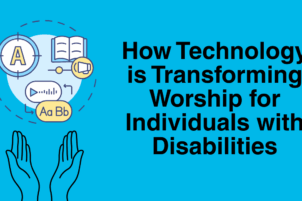 During this Mental Health Awareness month, I’ve been reflecting on how faith communities address mental health needs and become more inclusive in this area. While there still is a need for more education and decreasing stigma about mental health, it is encouraging to see more communities being willing to discuss these topics and offer ways to support people.
During this Mental Health Awareness month, I’ve been reflecting on how faith communities address mental health needs and become more inclusive in this area. While there still is a need for more education and decreasing stigma about mental health, it is encouraging to see more communities being willing to discuss these topics and offer ways to support people.
I have also realized that mental and emotional support even in a religious or spiritual framework can take many forms. It can be individual or group counseling, peer support, having a book study/discussion, connecting with others who have shared experience, or creating an education program.
When I moved overseas to Korea, one of the first things I did was to look for any Jewish community. Although I hadn’t been involved in a community back in New York, I somehow suddenly felt the need to connect with other Jewish people when I was so far from home. Finding a community means belonging to a group of people, and for Jewish people especially, there is an unspoken understanding and connection.
When I discovered Chabad, which had just newly started in Korea, there were Jews of many nationalities and religious levels, but everyone was welcome. The common thread was that we were all living in a foreign country and had to deal with adjusting to a new culture, unfamiliar customs, language issues, and not having support systems. In many ways, because we were such a small community, people got to know others and could develop relationships and support each other more. For myself, I felt most supported by being invited to Shabbat every week, joining women’s groups, and meeting individually with the rabbi’s wife for talking and learning. Later, some of my friends and I created our own Jewish group to support and include LBGTQ+ and intercultural couples/families who face many issues both in Jewish communities and in Korean society.
After coming back to the United States, I found it challenging to find a Jewish community and support network for myself. Since I wasn’t a member of any synagogue, I decided to search for other Jewish groups and resources online. I discovered several virtual communities and tried joining their discussion forums. I was curious to see what types of issues and topics people had and also to see what I could learn about emotional and mental health from a Jewish perspective. One of the groups was only for women, but all of them were Orthodox, so their approach had a very religious basis. Still, I did get encouraged listening to people sharing their stories about their struggles and challenges, and also hearing from guest speakers on related topics.
My hope is that more groups like this will form to include Jews of all religious levels and also different racial/ethnic backgrounds, sexual orientations, ages, etcetera. It is encouraging that we are starting to see initiatives like Mental Health Shabbat, and organizations like The Blue Dove Foundation and Chazkeinu expanding mental health awareness, education, and support, and encouraging people to discuss these topics openly in the Jewish community. Of course, there is still a need to decrease stigma further, but this is at least a step in the right direction.
I am including several of the Jewish mental health resources and services I mentioned for others to explore and share. I hope that others might be inspired to join some groups which already exist or to take steps to start their own. Raising people’s awareness about mental health issues and having courage to talk about sensitive and personal issues can be challenging, but ultimately it helps in building community. Those who face mental health issues can also teach others by sharing their personal or family stories, and once the discussions start, people will realize that they are not alone in their experiences and struggles. Faith communities can provide strength and comfort and allow people to share the vulnerable and emotional parts of themselves. It is crucial that faith communities let people know that they are accepted as they are and that their presence and contributions are recognized and valued.
Resources
- Blue Dove Foundation
- Mental Health Shabbat
- Chazkeinu – Jewish women’s mental health support network
- OKClarity – Jewish mental health counseling/coaching network







